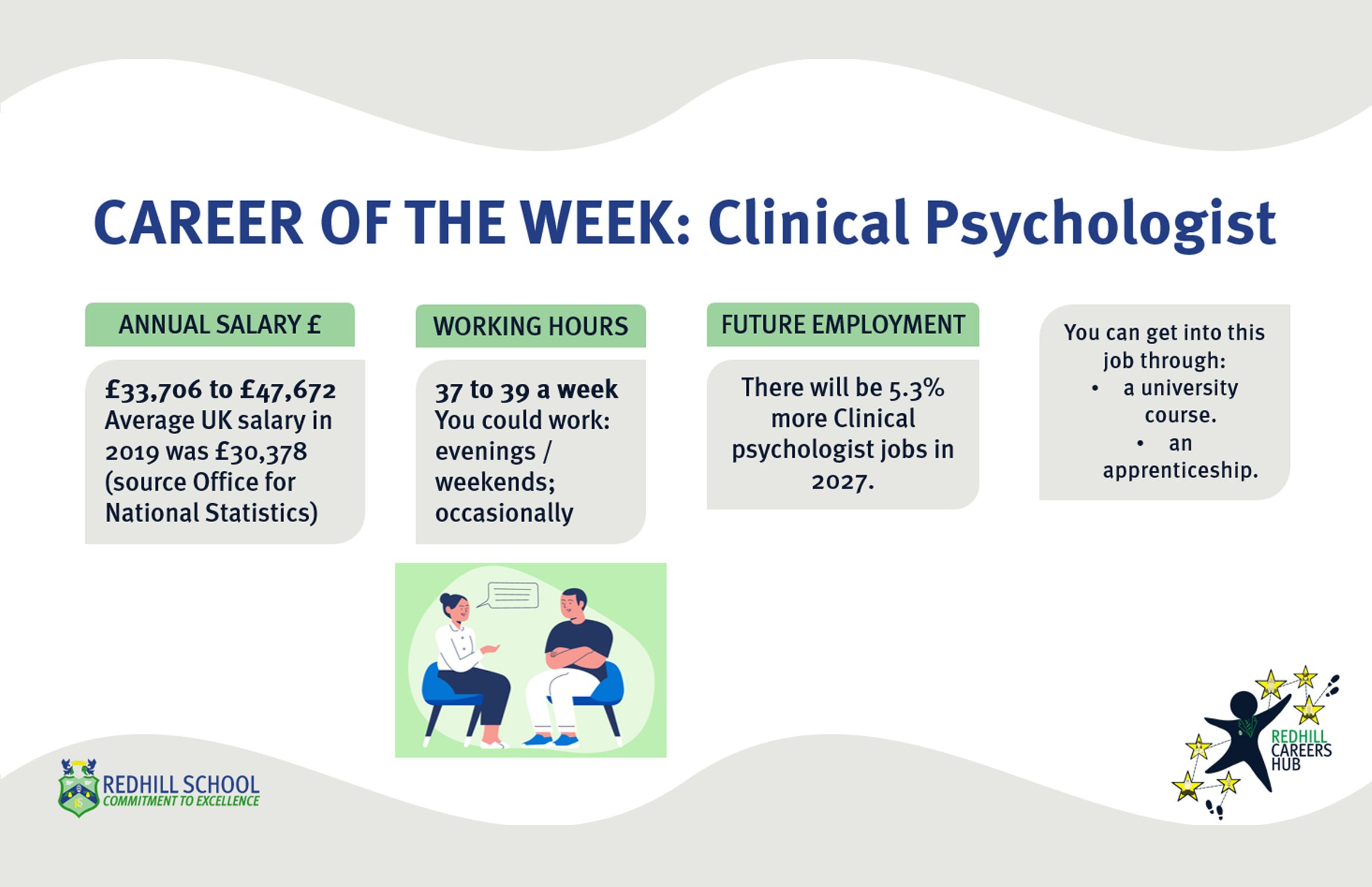Career of the week: Clinical Psychologist
Day to day tasks
As a clinical psychologist, you'll:
work out what your client needs using interviews and tests
decide on the best treatments, like therapy or counselling
go to conferences and research different topics
work closely with other professionals like doctors
write reports and act as an expert witness in court
Working environment
You could work in an NHS or private hospital, at a client's home, at a university or at a health centre.
Your working environment may be emotionally demanding.
University
You'll need a degree in psychology accredited by The British Psychological Society.
If you have a degree in a subject other than psychology, you can apply for an accredited conversion course.
Postgraduate course
After your degree, you'll need a postgraduate doctorate in clinical psychology. There's usually a lot of competition for places on postgraduate courses.
To get a place on a course, you'll need:a first or 2:1 (upper second class) in your degree; evidence of excellent research skills; some work experience
Entry requirements
You'll usually need:
3 A levels or equivalent
For more information
Apprenticeship
You could do a clinical associate in psychology degree apprenticeship.
As a clinical associate, you would work under the supervision of a registered clinical psychologist.
Once you've completed your degree apprenticeship, you'll need to apply for graduate membershipbefore you can apply for jobs as a clinical psychologist.
Entry requirements
You'll usually need:
a degree in a relevant subject for a degree apprenticeship
For more information
Requirements and restrictions
You'll need to:
pass enhanced background checks as you may work with children and vulnerable adults
More information
Professional and industry bodies
You can join The British Psychological Society for professional development and training opportunities.
Further information
You’ll find more about careers in clinical psychology from The British Psychological Society and Health Careers.

